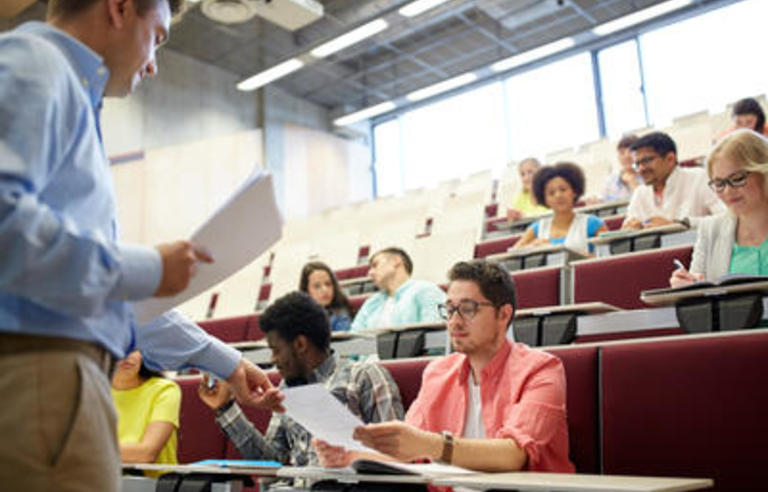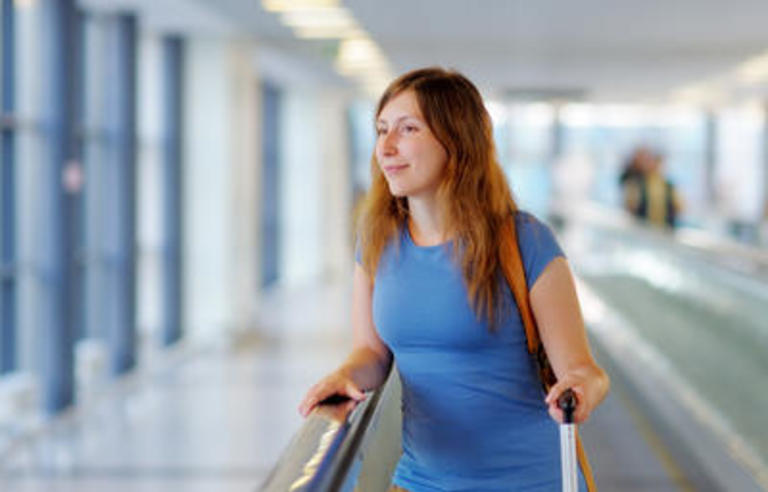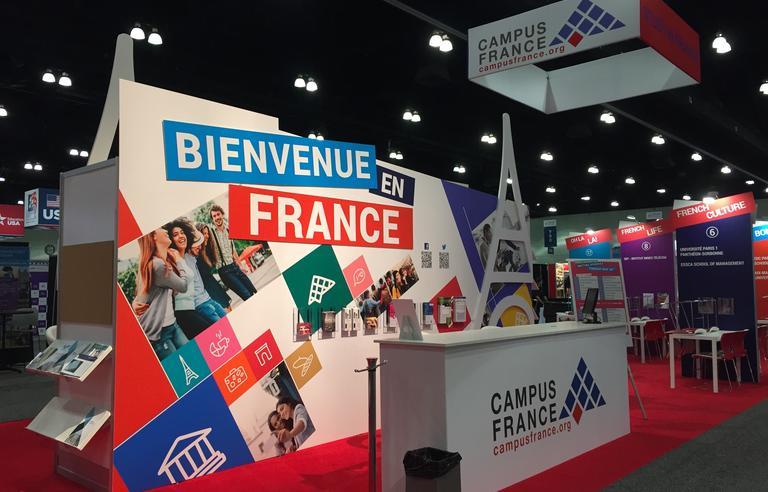สิทธิประโยชน์ของของนักศึกษาต่างชาติ

Culture, travel, health and accommodation: in France, students enjoy many benefits and significant discounts. Take advantage of them!
STUDENT DISCOUNTS FOR SEEING THE CITY IN A DIFFERENT LIGHT
Culture is accessible to students at a discount. Just present your student card and you will receive discounts when you go to museums, the theatre and the cinema. For European students under 26 years of age, entry to French national museums is free year-round. Entry to libraries is also free for all students.
Urban transit and inter-urban transit is cheaper, too. In the cities, the urban transit companies offer preferred rates to students. Taking the train is also cheaper, thanks to the SNCF's carte jeune for the 18-27 crowd.
If you're on a tight dining budget, try opening the door to one of the 450 university restaurants in France. For 3.25 euros, you can enjoy a complete meal, with starter, main course and dessert. You must show your student card to enter these restaurants. Some are even open evenings and week-ends.
SOCIAL ASSISTANCE, PREVENTIVE MEDICINE AND FAMILY PLANNING
Three types of assistance are available from the CAF (Caisse des Allocations Familiales - the Family Allowances Fund) that can reduce the rent you pay: the Allocation de Logement Sociale (ALS - the social housing assistance), the Aide Personnalisée au Logement (APL - the personal accommodation assistance) and the Allocation de Logement Familial (ALF - the family accommodation assistance). To find out if you qualify for any of this assistance, do a simulation on the CAF website. To meet one of the counsellors, go to the CAF Facebook page dedicated to student accommodation.
Each university has a health department, the Service Universitaire de Médecine Préventive et de Promotion de la Santé (SUMPPS). Every student may see a doctor there, have a medical check-up and obtain advice. Some visits are free, including for contraception, screening, vaccination, nutrition and psychological counselling.
You can also obtain help for subscribing to complementary health insurance and thus receive a higher rate of reimbursement of your medical expenses.
If you have any questions about sexuality, sexual relationships or contraception, visit Planning Familial - family planning association - which provides free and confidential appointments. Women may also obtain a suitable prescription for contraception there as well as the day-after pill if necessary. Family planning has offices throughout France.
STUDENTS, PRACTISE SPORT AT A LOW COST
At university, do some sport in the Service Universitaire des Activités Physiques et Sportives (the University Department of Physical and Sport activities - the SUAPS). You will have access to over sixty sports for a single payment at the start of the year. Student status also grants you discounts when going to a municipal swimming pool, ice rink or other sport centre.
GOOD DEALS RESERVED FOR STUDENTS
Students love burgers, and fast-food chains love students. Some chains have year-long student specials, sometimes even including a free extra sandwich.
Present your student card when you purchase software, a computer or any electronic device. Lots of electronics and IT stores have special offers for students. Photocopying and printing centres also have significant student discounts.
LEARN ALL THE DETAILS OF THE OFFERS FOR STUDENTS
Many sites will help you benefit from offers reserved for students. To name but few: https://mes-aides.gouv.fr/, http://www.etudiant.gouv.fr/, http://www.jeunes.gouv.fr/, www.tarif-etudiant.com and www.bons-plans-etudiant.fr.
SUPPORT FOR STUDENTS WITH DISABILITIES IN THE UNIVERSITY
Each university's support service has information on the support available for students with disabilities. These students, for example, often receive dedicated administrative support, adapted access to premises, teaching assistance (tutorials, support, note-takers, etc.) and techniques.
It is also possible to have an education assistant. The role of these education assistants is to provide support for and help the integration of students with disabilities that the Commission des Droits et de l'Autonomie des Personnes Handicapées (CDAPH - Commission for the Rights of Disabled People) has declared to be in need of assistance. This assistance may concern writing down or translating classes, and also the management of daily life.
In French universities, the Service Universitaire de Médecine Préventive et de Promotion de la Santé (SUMPPS - the University Department of Preventive Medicine and the Promotion of Health) monitors student health. It offers free preventive health assessments, various services (vaccination and testing, for example) and certain care for students with disabilities.
CORRESPONDENCE CLASSES FOR STUDENTS WITH DISABILITIES
If your disability prevents you from travelling, you can take correspondence classes. The Centre National d’Enseignement à Distance (CNED - National Centre for Education by Correspondence) in particular offers complete higher education programmes and preparation for the competitive entry exams for the Grandes Ecoles and the civil service specifically for students with disabilities.
If your university offers a remote-teaching service, you can also use it.
SOLUTIONS ADAPTED FOR STUDENTS WITH DISABILITIES
CROUS advisors help students with disabilities access adapted student lodging. They also make sure the university restaurants are accessible to all.
Transportation expenses for students with disabilities enrolled in a public institute of higher education may be covered. Contact the Prefecture to request this.
FIND OUT ABOUT THE FÉDÉEH
The FÉDÉEH (Fédération Etudiante pour une Dynamique Etudes et Emploi avec un Handicap - Student Federation for Working and Studying with a Disability) is a national federation which assists young people with disabilities in their professional training and work.
In particular, it supports the development of a support network for young people with disabilities (students or graduates) and a network of student associations for the disabled in universities and the Grandes Ecoles.
The FÉDÉEH also conducts actions which help young people with disabilities succeed: tutorials in secondary school, social activities, opinion campaigns or meetings between the disabled and employers. It also collects funds from companies and the general public to finance bursaries for students with disabilities.
























